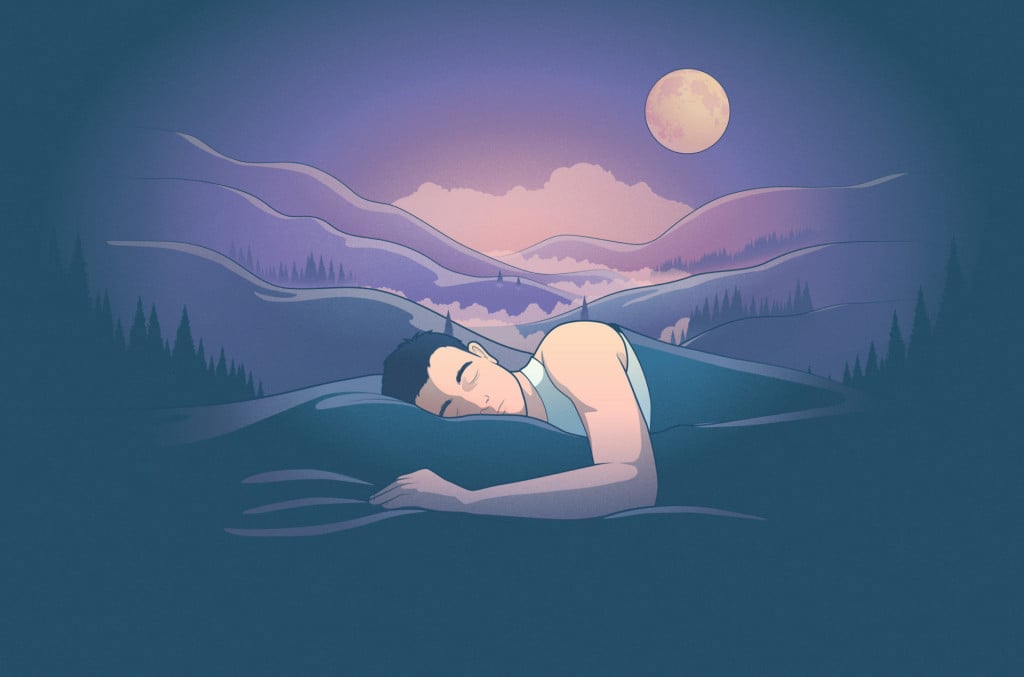Lack of Deep Sleep - One of the Haunting Problems of the World

Introduction
Deep sleep is an essential stage of the sleep cycle that plays a vital role in promoting overall health and well-being. During deep sleep, the body undergoes various restorative processes, including tissue repair, hormone regulation, and memory consolidation. However, many individuals struggle with a lack of deep sleep, which can have significant negative consequences on their physical and mental health. This article explores the causes, effects, and potential solutions for the lack of deep sleep, shedding light on an issue that affects a considerable portion of the population.
I. Understanding Deep Sleep
Before delving into the lack of deep sleep, it is crucial to understand the characteristics and significance of this sleep stage. Deep sleep, also known as slow-wave sleep or stage 3 sleep, is one of the four stages of the sleep cycle. It typically occurs in the first half of the night and is characterized by slow brainwave activity, relaxed muscles, and difficulty waking up. During this stage, the body experiences a decreased heart rate, lowered blood pressure, and increased blood flow to the muscles for repair and growth.
II. Causes of Lack of Deep Sleep
There are several factors that can contribute to a lack of deep sleep. Understanding these causes is essential for identifying potential solutions. Some common causes include:
Sleep Disorders: Conditions like insomnia, sleep apnea, restless leg syndrome, and narcolepsy can disrupt deep sleep patterns, leading to insufficient restorative sleep.
Stress and Anxiety: Psychological factors such as stress, anxiety, and depression can interfere with the ability to fall into deep sleep, as the mind remains active and alert during the night.
Poor Sleep Environment: External factors like noise, uncomfortable bedding, excessive light, and inappropriate room temperature can disrupt deep sleep and prevent individuals from achieving a restful state.
Lifestyle Habits: Unhealthy lifestyle habits, such as excessive caffeine or alcohol consumption, irregular sleep schedules, and lack of exercise, can negatively impact deep sleep.
III. Effects of Lack of Deep Sleep
The consequences of a lack of deep sleep can be far-reaching and detrimental to overall health. Some of the main effects include:
Impaired Cognitive Function: Insufficient deep sleep can lead to difficulties with memory, concentration, problem-solving, and decision-making, affecting daily performance and productivity.
Increased Risk of Chronic Conditions: Inadequate deep sleep has been linked to an increased risk of developing chronic conditions like obesity, diabetes, cardiovascular disease, and compromised immune function.
Emotional and Mental Health Issues: Lack of deep sleep can contribute to mood swings, irritability, anxiety, and depression, exacerbating existing mental health conditions or even triggering new ones.
Reduced Physical Performance: Deep sleep plays a crucial role in muscle recovery and growth. A lack of deep sleep can lead to reduced athletic performance, slower muscle repair, and increased risk of injuries.
IV. Strategies for Improving Deep Sleep
Fortunately, there are several strategies that individuals can employ to improve their deep sleep. These include:
Sleep Hygiene Practices: Establishing a consistent sleep schedule, creating a comfortable sleep environment, and implementing relaxation techniques before bed can promote deep sleep.
Stress Management: Engaging in stress-reducing activities like meditation, deep breathing exercises, and journaling can help calm the mind and prepare it for deep sleep.
Regular Exercise: Regular physical activity has been shown to improve sleep quality, including deep sleep. Aim for at least 30 minutes of moderate exercise most days of the week.
Limiting Stimulants: Minimizing caffeine intake, avoiding heavy meals close to bedtime, and reducing alcohol consumption can help promote deeper and more restful sleep.
Conclusion
In conclusion, deep sleep is a crucial stage of the sleep cycle that contributes to overall health and well-being. Deep sleep plays a vital role in memory consolidation, cognitive function, and overall brain health. Its impact on clearing toxins, such as beta-amyloid, from the brain is crucial in reducing the risk of Alzheimer's disease. Additionally, deep sleep contributes to cardiovascular health, including maintaining optimal blood pressure levels.
Related Discussions
- 2
Can Lack Of Some Nutrients In Your Diet Cause Mental-Related ill-Health?
by ngureco 16 years ago
Can Lack Of Some Nutrients In Your Diet Cause Mental-Related ill-Health?
- 12
How much does lack of sleep affect your mood?
by bueler 14 years ago
How much does lack of sleep affect your mood?
- 6
Lack of Empathy
by Allen Donald 6 years ago
One of the things I dislike about myself the most is my lack of empathy.People I know are going through a lot more serious things than I am - like way more serious. Yet, I allow my petty problems to overwhelm my psyche. Other problems should be able to put my relatively small issues into...
- 7
Is insomnia bad for your health?
by Amanda S 13 years ago
Is insomnia bad for your health?
- 10
Can being overweight lead to health problems?
by Haseena 12 years ago
Can being overweight lead to health problems?





